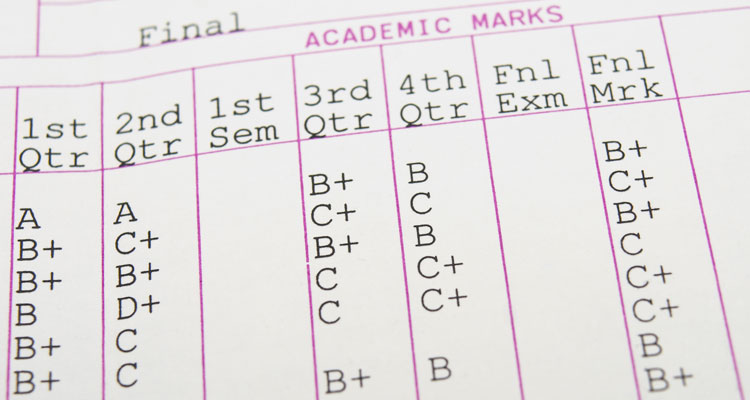The letters of the alphabet are not created equal. In educational context, the letter A represents smartness and success. The letter F is to be avoided at all costs. As parents, we encourage our own kids to earn the A and are concerned when we see the F. This creates a pattern of behavior that focuses on the mark instead of the learning.
Grades should not be a driving factor for students to learn. We all want every student to be successful. That success metric might be different for every family and every child. I do think it is safe to say that society demands more from us as citizens than to just get good grades. What if there was a system that could communicate success and put a focus on learning, rather than a letter grade? In order to explore this system we must understand the purposes of grading.
Purposes of grading in no particular order:
- Communicate the achievement status of students to all stakeholders.
- Provide information that students can use for self-evaluation.
- Select, identify, or group students for certain educational paths or programs.
- Provide incentives to learn.
- Evaluate the effectiveness of instructional programs.
When grades are used to only provide incentives to learn and to group students for certain paths, then we are missing an opportunity for students to grow. Research shows that when students are given the opportunity to self-report their own grades, according to high expectations, then students learn and grow more. In fact, it is one of the best structural implementations that schools can adjust in order to empower students to reach their learning potential. Research has also found that letter grades tend to reduce students’ interest in learning. Furthermore, teachers who moved away from the traditional A-F grading system say that their students seem more engaged in the subject material and are taking more ownership of their learning.
Grading can and should be student-centered instead of institutionally driven. Teachers have the power to set expectations that are clear and hold students to high standards. These standards should be readable to students and allow them to understand how to demonstrate what they have learned beyond a paper and pencil test.
I implore all parents in all schools to advocate for transparent grading systems that provide information to students and parents for self-evaluation. This means that schools would move away from a traditional A-F grading system, and move to a competency-based model of grading. If you would like more information about competency-based learning and how this is possible, please call or email us at info@libertylaunchacademy.org.

